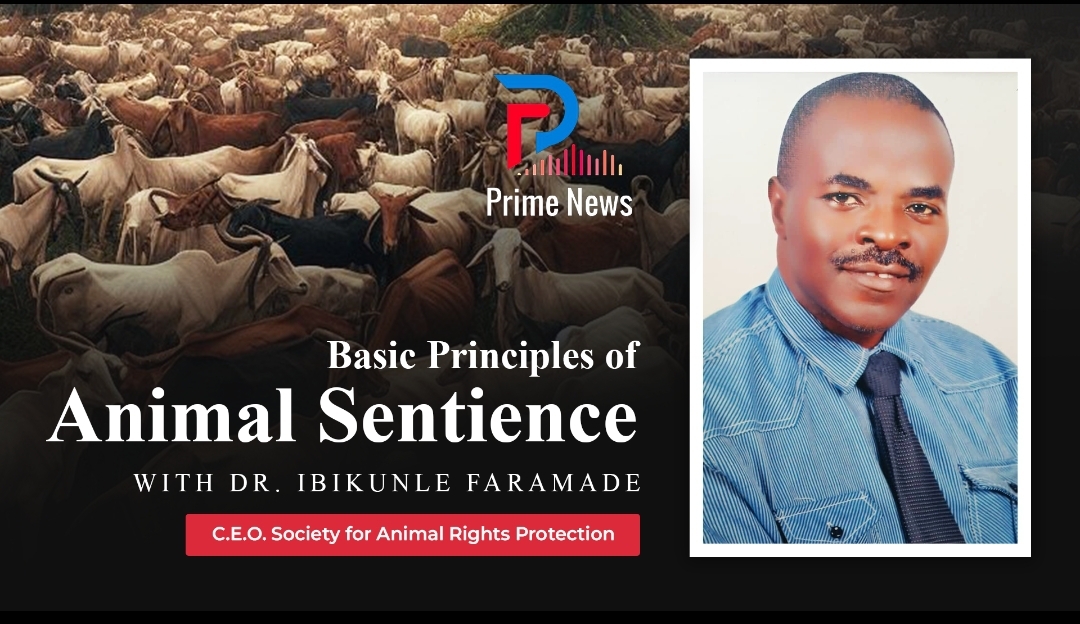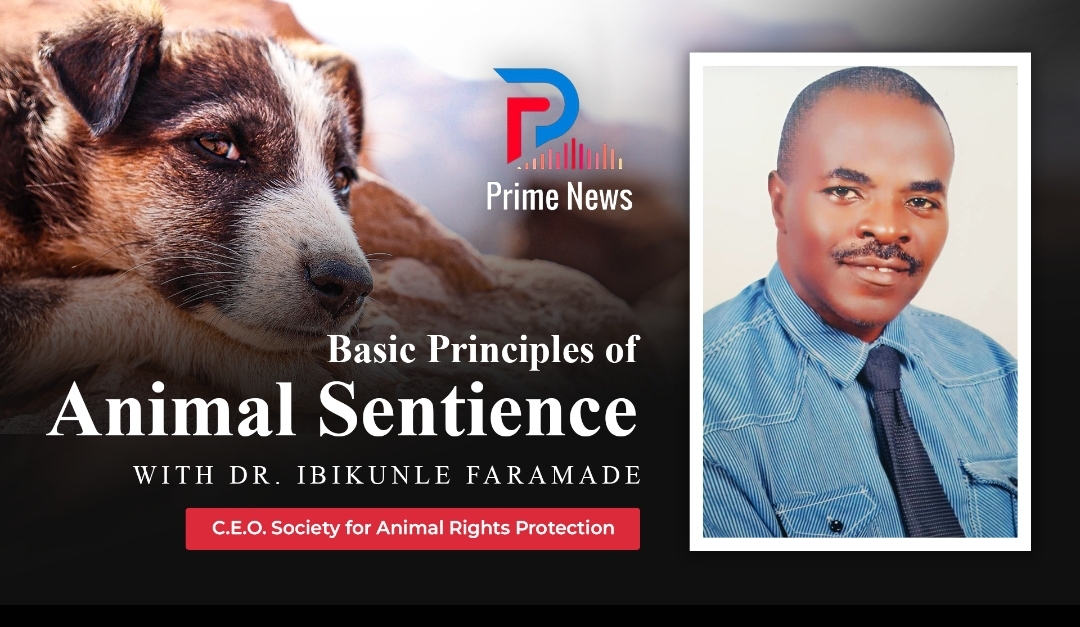By Dr Ibikunle Faramade
The focus of this column today is to educate the general public on the relevant provisions of the Animal Disease (Control) Act, 2022 that safeguards animal welfare in Nigeria. The Animal Disease (control) Act 2022 is a comprehensive legal provisions that borders on many thematic areas that has to do with animal health, biosecurity animal welfare etc. in Nigeria.
The duty to protect animal welfare spans between sections 21 and 25.
Section 21 (1) states that A person who has an animal in his possession or control shall, having regards to the animal’s nature, type, species, breed, development. Adaptation, domestication, physiological and behavioral needs and environment, and in accordance with established experience and scientific knowledge, take all necessary steps to ensure that:
- The animal is kept and treated in a manner that (i) safeguards the health and welfare of the animal and (ii) does not threaten the health or welfare of the animal or another animal ; and
- All buildings, gates, fences, hedges, boundary walls and other structures used to contain the animal are constructed and maintained in a manner so that they do not cause injury or unnecessary suffering to the animal.
(2) A person who contravenes provisions of this section commits an offence and is liable on conviction:
(a) in the case of first time offender to a fine of at least N50,000 or imprisonment for a term of three months or both or (b) in the case of subsequent offenders to a fine of at least N150,000 or imprisonment for a term of six months or both.
Section 22 (1) A person shall not:
- Beat , kick, over- ride over- drive, over-load, torture or otherwise treat any animal so as to subject it to unnecessary pain or suffering or other causes, or being the owner, permit any animal to be so treated
- Employ any unfit animal by reason of its age, disease, infirmity, wound, sore or other causes to work, or being the owner permit any such unfit animal to be so employed.
- Willfully and unreasonably administer any injurious drug or substance to be taken by any animal
- Convey or carry, whether in or upon any vehicle or other means of transport any animal in such a manner or position as to subject it to unnecessary pain or suffering;
- Confine animal in any cage or other receptacle which does not measure sufficiently in height, length and breadth to permit the animal a reasonable space for movement, or keep for an unreasonable time any animal chained or tethered upon an unreasonably short or unreasonably short or unreasonably heavy chain or cord.
- Being the owner , neglect to exercise or cause to be exercised at a reasonable times any dog habitually chained up or kept in close confinement
- Being the owner of (any animal) fail to provide such animal with sufficient food, water or adequate shelter
- Without reasonable cause, abandon any animal in circumstances that renders it likely to suffer pain by reason of mutilation, starvation, thirst
- Offer for sale or without reasonable cause , have in his possession any animal which is suffering pain by reason of mutilation, starvation, thirst, overcrowding or other ill treatment
- Kill or cause any animal to be killed (including stray animals) by using the method of strychnine injections, in the heart or in any other cruel manner, solely with a view to providing entertainment
- Confine or cause to be confined any animal (including tying of an animal as a bait for wildlife) so as to make it an object or prey for any other animal
- Organize, use or act in the management of any place for animal fighting or for the purpose of baiting any animal, permit or offer any place to be so used or receive money for the admission of any other person to any place kept or used for any such purpose
- Promote or take part in any shooting match or competition where animals are released from captivity for the purpose of such shooting
(2) For the purposes of subsection (1), an owner is deemed to have committed an offence if such a person has failed to exercise reasonable care and supervision with a view to the prevention of such offence.
(3) a person who contravenes sub section (1) commits an offence and liable on conviction
- in the case of first offender, to a fine of at least N 50,000 or imprisonment for a term of three months or both.
- in the case of subsequent offenders, to a fine of at least N150,000 or imprisonment for a term of six months or both
From the foregoing it is very clear that there is a strong legal framework for animal welfare in Nigeria. It is also true that ignorance of the law is not a tenable excuse in the law court. Due to this, this column will conclude this awareness effort on Animal Disease (Control) Act 2022 as it relates to animal welfare by next week, God willing.
Thank you
Dr. Ibikunle Faramade is a veterinary pathologist and a lecturer at the Federal College of Animal Health & Production Technology, Apata. Ibadan. He’s the C.E.O of the Society for Animal Rights Protection, a non-profit and a non-governmental organization dedicated to the promotion of animal welfare, animal rights and prevention of cruelty to animals.
animalrightsprotection2020@gmail.com , +2348028305284



